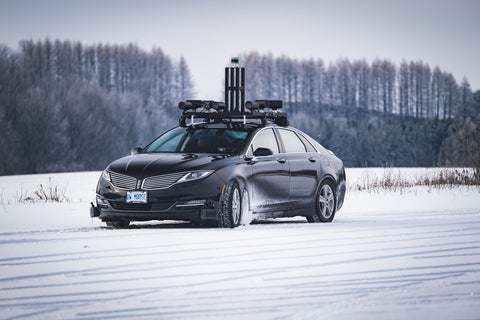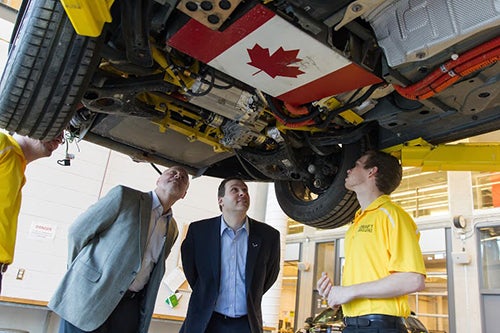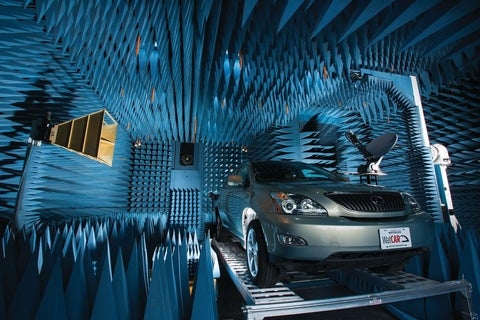
Your Partner in Future Mobility
The Waterloo Centre for Automotive Research (WatCAR) is Canada's largest automotive-academic research hub. It connects the University of Waterloo with automotive manufacturers, parts suppliers, and related industries and organizations across the country and around the world.
WatCAR researchers advance innovation, collaborate with industry, and prepare the workforce of tomorrow. WatCAR represents and supports hundreds of faculty members and researchers from across a diverse range of disciplines, making it a central part of the university's engagement with the automotive and mobility sector.
Our Three Pillars
Research Partnerships
Fostering collaboration between the University and industry to driving innovation and address key challenges in the automotive/mobility sector.
Professional Development and Training
Cutting-edge training to equip both students and industry professionals with the expertise needed to meet rapidly changing demands.
Stakeholder Engagement and Public Outreach
To ensure our research and training will have real-world impact.


